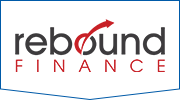Unfortunately, debt can start to spiral out of control right before your eyes. Keeping up with payments, staying on top of statements, and making sure everything fits within your budget can become overwhelming very quickly. If any of this seems all too familiar to you, you may want to consider debt consolidation.
With a debt management program, a credit and debt expert will help you consolidate your debt, settle with your creditors, manage your money, and provide you with peace of mind that your debt is being taken care of.
A debt management program can help you take control of your debt by:
- Reducing your monthly payments
- Reducing or stopping the accumulation of interest
- Reestablishing your credit
- Ending the constant collection calls
- Relieving the stress associated with managing your debt
When you enter a debt management program you’ll work one on one with a credit counselor who will tailor a plan to your unique debt needs. They’ll negotiate, on your behalf, with your creditors and make sure you’re getting the best possible repayment plan that fits into your budget.
Types Of Debt You Can Consolidate With A Debt Management Plan
It’s important to note that not all debt can be consolidated with a debt management program. For your reference, we’ve compiled a list of debt that can be consolidated with a debt management program.
- Credit card debt
- Unsecured personal loan debt
- Credit union unsecured loans and credit card debt
- Apartment leases for an apartment you no longer live in
- Mortgage “short pay” balances (when you lose your home and still owe money)
- Auto repossession debt
- Retail store credit card debt
- Gas cards
- Non-government insured student loan debt
- Past due cell phone bills for a service you no longer have
- Past due utility bills for a service you no longer use
- Medical bill debt that is already in collections
Getting The Help You Need
A debt management program will not only help you get your finances back on track, it can help you avoid more drastic debt relief options like bankruptcy. Dealing with debt is not easy or fun, this is why it’s so important that you work with a professional who can guide you in the right direction and provide you with all the information you need to make the best possible decisions for your financial situation.
If you’re currently looking for help to deal with your debt, we can help. Get in contact with us today.



